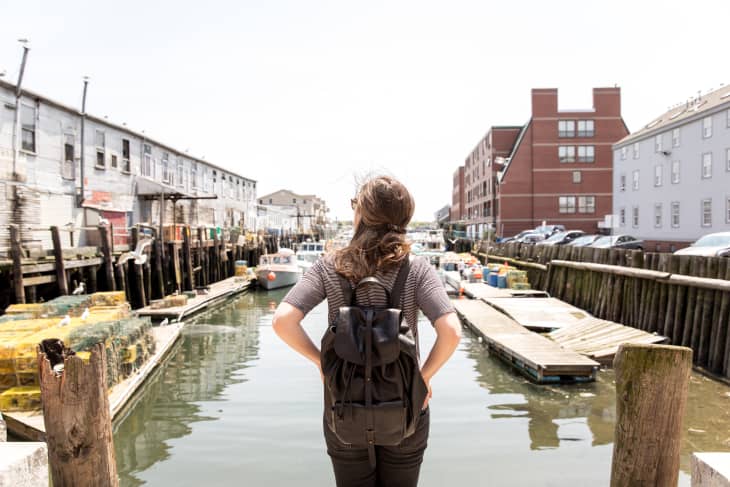4 Tips for Moving Abroad While Working Remotely, According to Someone Who Has

Whether you’re part of “The Great Resignation” or, like many people in this Covid-adapting world, have found yourself with the opportunity to work from home either temporarily or permanently, perhaps it’s time to put some thought into how to best take advantage of your newfound freedom.
As a freelance writer, I have the flexibility to work from afar so, in 2016, I sold my house and became what I like to call geographically fluid. This means I’ve rented apartments all over the world, some short-term and some longer-term. I’ve gained knowledge about how to find the best apartment for your situation and what to look for — and I’m here to share it with you.
What to Consider
First things first, you must decide where you want to live. Here are some things to mull over:
- Cost of living: Consider the exchange rate for the type of currency used. Not every country in Europe, for example, uses the Euro.
- Transportation: Will you require a car? Cars can be costly in some countries and gas prices vary. Importing your car is an option, but can also be costly. Some countries require you to obtain a local driver’s license after a certain amount of time and sometimes their testing requirements can be, well, challenging.
- Schools: Got kids? Do you plan to send them to an international school or a local one? Or maybe even home school? Be sure to look into this before making your final decision.
- Language: Do you speak the language? Do locals speak yours? How hard will it be to learn the language of your new country?
- Visa requirements: How long can you stay on a tourist visa? What are the requirements to get a longer-term one? Can you apply for it while in the country?
To get answers to all of these questions you should make friends with Google, but also join some expat groups on Facebook and ask questions. Just remember, not all expats have the same experiences.
How to Find a Place
Let’s say chosen a city to start your adventure and checked out the required visas, but how do you find your perfect apartment? My top recommendation is to do a search on Facebook for apartments in your new city. For instance, I’m currently living in Budapest, so I joined some of the many “apartment rentals Budapest” groups. This will give you an idea of what you can get for your money, rental terms, and even in what areas you might want to live.
Normally the longer you commit, the lower the monthly price. If you see a place you’re interested in but it’s slightly above your budget, you can contact the owner to express your interest but mention your slightly lower budget (but don’t go a lot lower, as that can be insulting). I’ve had owners turn me down but get back to me a month later offering to work with me if they’ve not been able to rent it yet. Sometimes they have a few apartments to rent so they may turn you down for the one that caught your eye but might offer to show you another one.
Another handy resource for apartment shopping is Airbnb or VRBO. These aren’t always for short-term rentals and, though you’ll find weekly and monthly discounts (seriously, consider renting for a month as the discounts can be huge), if you apply for dates that allow you to get in contact with the owner, explain your situation, and ask if they’re flexible for a long-term lease. The owner can change the price on the listing and make you an offer.
If at all possible, stay in a temporary accommodation when you first arrive so you can physically look at places before signing an agreement and turning over your cash.
Lease Terms
Don’t assume the terms are the same as they are in your home country. Extras may include monthly costs for building upkeep, WiFi, utilities, and more. Understand how much you’ll pay in all. Do you want a furnished or unfurnished apartment? You may want to start with a furnished one until you’re sure this is where you want to be and for how long. You can still make a furnished apartment your own by decorating with pillows, local artwork, and plants. Plus, this gives you a reason to explore local shops.
What should you bring?
You may not believe this, but on a Budapest expats Facebook page, someone asked if the garden hose adapters were the same as in the U.S. to see if they should bring theirs. Take my advice: leave the garden hose at home. If you feel you need to bring yours, you should consider whether moving overseas is for you. You’ll need adapters, as the electrical outlets will probably differ. Still, most small appliances (including phones) no longer need an electrical converter to switch between 110/220 volts.
Some things like luggage, electronics, and athletic shoes can cost more in some countries than in the U.S. so be sure to bring current versions from home. Keep in mind also that pillows and mattresses may come in slightly different sizes than in your current home, so you may want to leave yours behind.
Keep an open mind and be ready for adventure.
New, flexible working situations have created fantastic opportunities to explore new areas and meet people of different cultures. Just keep in mind that living someplace can be very different than vacationing there but, take it from me, living like a local can be both enjoyable and empowering as long as you keep an open mind and a sense of humor.